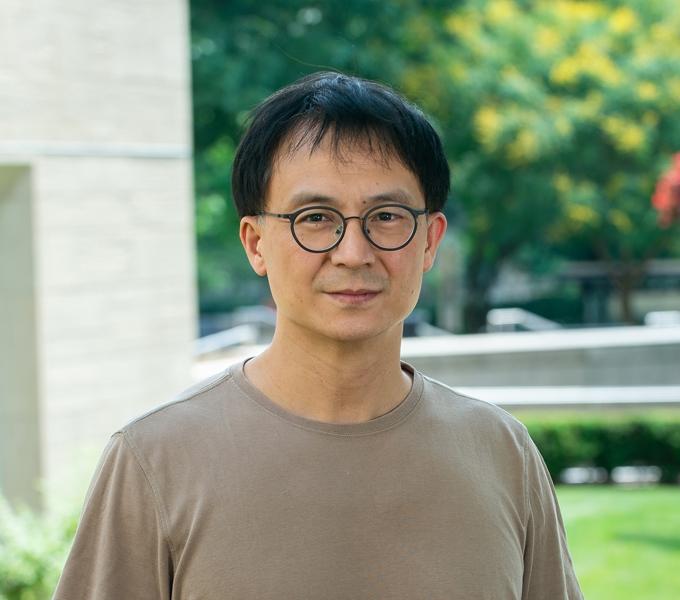- PhD, The Chicago Medical School (2002)
Education & Training
Cellular and circuitry mechanisms underlying pathological neural plasticity
Emotion and motivation are two basic, interlinked concepts in neuroscience, with ramifying connotations across psychology and philosophy. Thus far, neuroscience cannot yet provide coherent explanations for why some stimuli cheer us up whereas others make us sad, why my fishing trip to a picturesque river is given up in favor of typing this paragraph, and why reading and memorizing knowledge that used to be so boring for me as a kid become so rewarding after a 20-year of "habituation".
Our long-term research goal is to understand the neural mechanisms underlying emotional and motivational responses. We focus on animal models related to drug addiction. Addictive drugs are among the most effective and efficient external stimuli that evoke the strongest emotional and motivational states. Once "hijacked" into the addictive state, an individual will be primarily motivated by an exceedingly strong emotional state, the drug-seeking/craving state.
We hypothesize that strong incentive stimuli, such as experience of drugs of abuse, shift the emotional and motivational states by rewiring the neural circuits in the brain reward pathway. To test this hypothesis, we have been examining several novel forms of neural plasticity upon exposure to cocaine.
Two related research areas are depression, which is characterized in part as a lack of motivation, and sleep, which modulates the emotional and motivational state across most species.
These lines of research in the laboratory are currently carried out by several highly motivated young souls, who are equipped with a combination of molecular, cellular, electrophysiological, and behavioral expertise.
Yu J, Yan Y, Li K-L, Wang Y, Huang YH, Urban NN, Nestler EJ, Schlüter OM, Dong Y. 2017. Nucleus Accumbens Feedforward Inhibition Circuit Promotes Cocaine Self-Administration. Proceedings of the National Academy of Sciences USA 114(41): E8750-59.
Graziane NM, Sun SC, Wright WJ, Jang D, Liu Z, Huang YH, Nestler EJ, Wang YT, Schlüter OM, Dong Y#. 2016. Opposing Mechanisms Mediate Morphine- and Cocaine-induced Generation of Silent Synapses. Nature Neuroscience 19(7): 915-25.
Ma YY, Lee BR, Wang X, Guo C, Liu L, Cui R, Lan Y, Balcita-Pedicino JJ, Wolf ME, Sesack SR, Shaham Y, Schlüter OM, Huang YH#, Dong Y#. 2014. Bidirectional Regulation of Incubation of Cocaine Craving by Silent Synapse-based Remodeling of Prefrontal Cortex to Accumbens Projections. Neuron 83(6): 1453-67.
Lee BR, Ma YY, Huang YH, Wang X, Otaka M, Ishikawa M, Neumann, PA, Graziane NM, Suska A, Guo C, Lobo MK, Sesack SR, Wolf ME, Nestler EJ, Shaham Y, Schlüter OM, Dong Y#. 2013. Maturation of silent synapses in amygdala-accumbens projection contributes to incubation of cocaine craving. Nature Neuroscience 16(11): 1644-51.
Winters DB, Krüger JM, Huang X, Gallaher ZR, Ishikawa M, Czaja K, Krueger JM, Huang YH, Schlüter OM#, Dong Y#. 2012. CB1-expressing neurons in the nucleus accumbens. Proceedings of the National Academy of Sciences USA 109(40): E2717-25.
Huang YH, Lin Y, Mu P, Lee BR, Brown TE, Wayman GA, Marie H, Liu W, Yan Z, Sorg. BA, Schlüter OM, Zukin RS, Dong Y#. 2009. In vivo Cocaine Experience Generates Silent Synapses. Neuron 63: 40-47.
